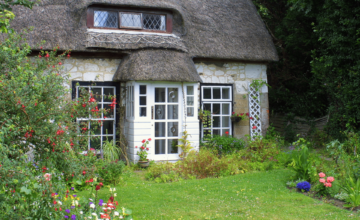
Buy to Holiday Let Mortgages
The growing demand for UK staycations has given rise to new opportunities for those investors looking to start or grow their holiday home portfolios. The buoyancy of the market has also increased the number of lenders offering buy to holiday let mortgages, although this is still a relatively niche product.
Whether you’re buying a new property, or converting an existing property, if it’s intended for use as a holiday rental business, you’ll need a specialist buy to holiday let mortgage. This type of loan is designed for short-term lets, while also allowing you to personally use it as a holiday home at certain times during the year.
To qualify as a holiday let the following conditions apply:
- The property must be furnished and available as a holiday let for at least 210 days (30 weeks) a year
- The maximum length of time for any single holiday let can be no more than 31 continuous days
- The property must be commercially let for at least 105 days in the year
If you are converting an existing property, you must ensure that your current mortgage lender or lease agreement allows for it. It’s also important to check with your local authority to assess whether you need planning permission for a change of property use. Lenders will use a Buy to Let mortgage calculator to assess your applications.
From AirBnB, to more traditional short term rental properties we can find the right finance for your holiday let investment.
We have lenders offering limited company and own name mortgage products, to experienced investors and first time landlords. Whether you are looking for a 50%, 60%, 70% or 80% LTV holiday let mortgage, get in touch today. If it is possible our whole of market status means our team will be able to help.

Holiday Home Mortgages
The growing demand for UK staycations has given rise to new opportunities for those investors looking to start or grow their holiday home portfolios. The buoyancy of the market has also increased the number of lenders offering buy to holiday let mortgages, although this is still a relatively niche product.
Whether you’re buying a new property, or converting an existing property, if it’s intended for use as a holiday rental business, you’ll need a specialist buy to holiday let mortgage. This type of loan is designed for short-term lets, while also allowing you to personally use it as a holiday home at certain times during the year.
Receive a Mortgage Quote
Advice that’s tailored to your own bespoke situation.
Enter your contact details and we will contact you, typically within 10 minutes (during normal business hours).

No Broker Fee*
Let Vincent Burch Mortgage Services arrange the best mortgage available for your circumstances.
To request a phone call from one of our advisors, please submit your details above and we will contact you at the earliest possible time.
Holiday Let Mortgage Advice
What is a holiday let mortgage?
Simply put, a holiday let mortgage is a mortgage designed for people looking to buy a property that will be let out to holiday makers on a short-term basis as a business. It differs from a second-home mortgage, which is a property that will only be used on a personal basis.
Can I get a mortgage on a holiday let?
Holiday homes rented out to the public for profit cannot be purchased with a typical residential mortgage, even if you intend to stay in the property for longer periods of time. You will need to get the correct mortgage for the property use which would be a specialist Buy to Holiday Let mortgage.
Lenders might offer you a buy-to-let mortgage, but you will most likely require a specialist holiday let deal, due to the increased ‘risk’ to the lender.
Can I get a mortgage for a holiday let without owning other property?
If you are applying for a holiday let mortgage, you must already own your own home and be over the age of 21. It is normal to see holiday let mortgages for single and joint owners, but many lenders will allow up to four names on the application form.
Each lender will have their own set of criteria. Lenders will usually stipulate a minimum income requirement and this will vary depending on the lender, this can also be affected by your status as either a sole or joint applicant.
Mortgage lenders will typically expect you to make a minimum gross rental income, and this is known as a stress test.


